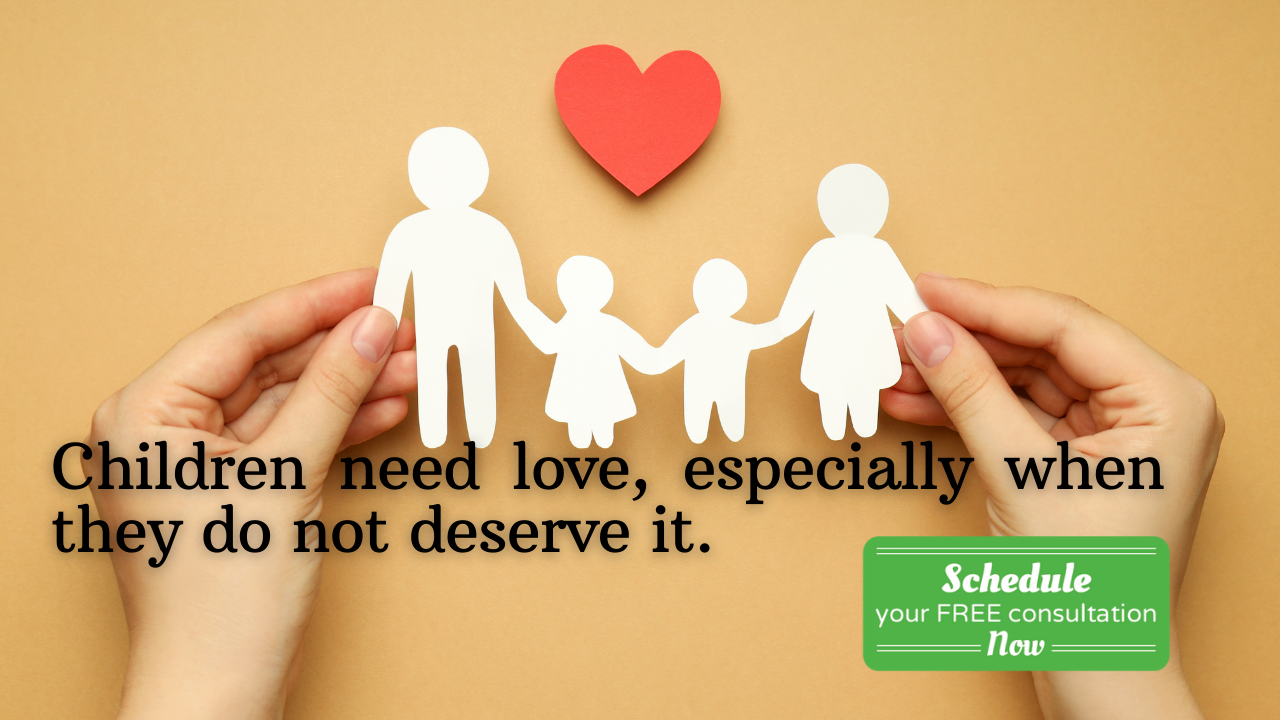Are You Ready to Process and Heal Family Trauma?
As a parent, you want the best for your child. But sometimes, despite your best efforts, your child may be struggling with emotional or behavioral issues that are impacting their development and well-being. This can be a difficult and stressful experience for both you and your child.
Perhaps you have noticed some changes in your relationship with your child, or perhaps you are worried about changes in their behavior at home or school. You may be concerned about your child's strong emotions and how they express them (or don't express them), and these concerns may be shared by your child's teacher or pediatrician. You've tried various parenting techniques and advice from books and articles, but nothing seems to be making a difference. You feel stuck, lost, and perhaps even a little heartbroken. At this point in your parenting journey, you need more support. That's where we come in, and we are happy that you are considering play-based child therapy as an option.
Child therapy can provide a safe and supportive environment for children to explore their emotions, learn coping skills, and build resilience. Through evidence-based therapies, children can develop the skills they need to navigate the challenges of growing up and build a strong foundation for their future.
Parents may seek child therapy for a variety of concerns, such as:
Anxiety and depression
Behavioral issues, such as anger or defiance
School-related problems, such as peer relationship problems or academic difficulties
Trauma and grief
Family conflicts, such as divorce or separation
Adjustment difficulties, such as a move or change in family dynamics
It's important to remember that every child is unique and may develop at their own pace. Child therapy can help identify areas where your child may be struggling and provide interventions to support their development.
What to Expect in Child Therapy
Child therapy typically involves evidence-based interventions that are tailored to your child's specific needs and developmental stage. Sessions may involve creative activities, such as drawing or storytelling, to help your child express their emotions and develop coping skills. Parents may be involved in therapy sessions to provide support and help facilitate their child's progress outside of therapy. The therapist may also provide parenting strategies and tools to help manage challenging behaviors and improve communication with their child.
Approaches to Family Therapy
Acceptance Commitment Therapy (ACT): ACT aims to help children develop psychological flexibility by teaching them mindfulness, acceptance, and commitment to personal values. In child therapy, ACT can be helpful in addressing issues such as anxiety, depression, and behavior problems. ACT encourages children to learn to accept their feelings and thoughts without judgment, and to be present in the moment. Children are taught skills to cope with distressing thoughts and feelings, such as mindfulness, breathing exercises, and imagery. ACT also focuses on values-based actions, encouraging children to set and work towards
Cognitive Behavioral Therapy (CBT): CBT typically involves helping the child identify and challenge negative thoughts and beliefs that may be contributing to their emotional or behavioral problems. For example, a child with anxiety may have the belief that they are not safe, and this belief may be causing them to avoid certain situations or activities. The therapist would work with the child to challenge this belief and develop more realistic and adaptive thoughts.
Dialectical Behavioral Therapy (DBT): DBT is a useful approach for children and adolescents with a variety of emotional and behavioral difficulties. DBT is a skills-based approach that emphasizes the development of coping skills, emotion regulation, and interpersonal effectiveness. One of the key skills taught in DBT is mindfulness, which helps children develop the ability to be present in the moment, without judgment or distraction. Mindfulness skills can be particularly helpful for children who struggle with anxiety, as it can help them learn to tolerate and manage difficult emotions.
Eye Movement Desensitization and Reprocessing (EMDR): EMDR helps children process traumatic experiences and reprocess them in a more adaptive way, reducing distressing symptoms and improving overall functioning. EMDR can be particularly helpful for children who have experienced traumatic events, such as abuse, neglect, or accidents, as well as those struggling with anxiety, phobias, and other emotional and behavioral issues. By helping children process and integrate their traumatic experiences, EMDR can reduce symptoms such as nightmares, flashbacks, and avoidance behaviors, and improve overall functioning and quality of life.
Internal Family Systems (IFS): IFS help children develop a deeper understanding and acceptance of their own emotions and internal experiences. By learning to identify and communicate with their different parts, children can gain a greater sense of self-awareness and self-compassion, which can be particularly helpful for children who struggle with emotional regulation or self-esteem issues.
Child therapy can be a powerful tool for helping children and families thrive. By seeking support for your child, you are taking an important step towards improving their emotional well-being and building a stronger family bond. Remember, it's never too early or too late to seek help. With the right support, your child can develop the skills they need to navigate life's challenges and build a bright future.
Schedule your free consultation with me today to find out how we can work together and put you back in control.
